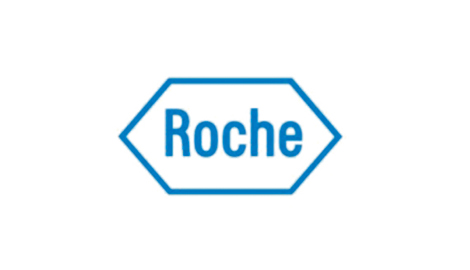fiercepharmaFebruary 01, 2019
Tag: Roche , biosimilars , 2018 , Ocrevus
A major concern at Roche lately has been whether it can keep its head above water in the face of biosimilar challenges. At least for 2018, the Swiss drugmaker stayed in the swim, thanks to newer medications such as multiple sclerosis blockbuster Ocrevus.

2019, though? That could be tougher.
Having already crossed the blockbuster line in the first half of 2018, Ocrevus grew sales to 680 million Swiss francs ($685 million) in the fourth quarter, bringing its whole-year haul to CHF 2.35 billion.
And Ocrevus achieved that in its first full year on the market—as its rivals in MS know all too well. No wonder CEO Severin Schwan dubbed it "the most successful launch in the history of Roche." Its increase has been driven by both new demand and follow-up treatments, with altogether 80,000 people having used it as of December, Roche said.
Ocrevus isn’t the only new drug that helped push Roche’s pharma business up 7% in 2018. HER2-positive breast cancer therapy Perjeta jumped 27% at stable exchange rates, reaching CHF 2.77 billion, which Roche attributed to its approval to help prevent tumor recurrence after surgery.
Meanwhile, Schwan called hemophilia therapy Hemlibra’s CHF 224 million performance "beyond expectations." ALK-positive non-small cell lung cancer treatment Alecensa’s CHF 200 million in the fourth quarter was also CHF 42 million above its third-quarter tally. PD-L1 inhibitor Tecentriq posted annual sales growth of 59%, to CHF 772 million, and a recent FDA approval for a Tecentriq-Avastin-chemo cocktail in first-line NSCLC could add about CHF 1.5 billion to the immunotherapy’s peak sales, ODDO BHF analyst Pierre Corby recently wrote in a note to clients.
In short, Roche ended 2018 on a high note, as its fourth-quarter sales were above analysts’ expectations and represented the largest growth of any quarter in 2018, according to Corby in a Thursday note. But the company knows it’s facing a much tougher year ahead, as biosimilars to its trio of cancer megablockbusters—Avastin, Herceptin and Rituxan—will put more pressure on its top line.
In Europe, where copycats have already hit, Herceptin’s and Rituxan’s fourth-quarter sales plummeted 34% and 46%, to CHF 354 million and 185 million, respectively. Rituxan biosimilars have so far grabbed nearly half of European share, and Herceptin copycats have enjoyed an even faster launch, capturing 24% share by volume at just seven months, likely helped by experience with Rituxan, Bernstein analyst Ronny Gal noted in a recent report to investors.
All told, biosimilars dealt a CHF 1.3 billion blow to Roche in 2018, according to CFO Alan Hippe during the company's earnings conference call.
A strong 7% growth in the U.S. in the fourth quarter helped cushion Rituxan’s overseas fall, but the FDA in late November approved Celltrion and Teva's Truxima, the first Rituxan biosimilar for the U.S. market. The first Herceptin copycat became an FDA-approved reality even earlier, in late 2017. Corby said those launches are expected mid-2019.
Executives wouldn't estimate on Thursday just how much those biosimilars will cut into U.S. sales. Newly minted pharma chief Bill Anderson cited ongoing patent litigation "and what choices various biosimilar companies might take, with respect to whether they launch with partial labels based on settlement" as the first level of uncertainty. He also said there's not enough precedent in U.S. biosims to make any uptake predictions.
Anderson played down the potential impact on 2019 numbers "because it happens in the second half." But still, the company is now guiding 2019 sales growth in the low- to mid-single digits. Pressured by one analyst on how Roche came up with that guidance number, Anderson said, "We have a plan, and the guidance reflects the middle of what we think it could be."
Biosimilar adoption, in general, has been slow in the U.S. In a recent report to investors, Bernstein analyst Ronny Gal illustrated how several market forces are stymieing uptake, including insurers who fear that, if they require biosimilars, physicians will switch patients to more pricey branded drugs instead. But that may change as U.S. authorities, including the FDA, push for broader use.
Register as Visitor to CPhI China 2019!

-----------------------------------------------------------------------
Editor's Note:
To apply for becoming a contributor of En-CPhI.cn,
welcome to send your CV and sample works to us,
Email: Julia.Zhang@ubmsinoexpo.com.


Contact Us
Tel: (+86) 400 610 1188
WhatsApp/Telegram/Wechat: +86 13621645194
Follow Us:




 Pharma Sources Insight January 2025
Pharma Sources Insight January 2025


